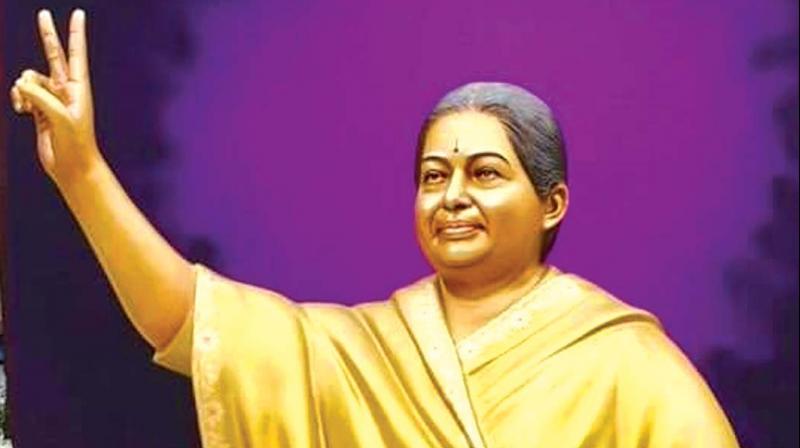Apollo Hospitals moves Madras HC against Jaya probe panel
Such accusations \"impute unsubstantiated serious criminal motives to the bonafide medical treatment\" provided to the late leader, the plea said.

Chennai: Apollo Hospitals has approached the Madras High Court urging it to restrain the Justice Arumughaswamy Commission of Inquiry probing Jayalalithaa's death from looking into the medical treatment provided to her in 2016 and alleged that the Commission was prejudiced against the hospital.
Apollo wanted the court to quash government orders that brought medical treatment to the late leader under the Terms of Reference of the Commission. This plea comes a month after a counsel for the Commission alleged in a petition before the Commission that Tamil Nadu Health Secretary J Radhakrishnan colluded and conspired with Apollo Hospitals and "inappropriate treatment" was provided to her. Both had denied the allegations.
Citing the accusation, the hospital sought barring the Commission from going into aspects like correctness, adequacy, or inadequacy of the medical treatment provided to Jayalalithaa. The Commission was a fact finding body and not meant to be "adversarial or accusatory", the hospital said in its plea. In the present case, however, the commission has stepped into the shoes of an "accuser," and falsely accused the hospital of "conspiracy, collusion, inaction and inappropriate treatment," Apollo said in its petition.
Such accusations "impute unsubstantiated serious criminal motives to the bonafide medical treatment" provided to the late leader, the plea said. There was a "real danger of prejudice and bias" in the manner in which the panel has been conducting examination of witnesses. The nature of questions framed for witnesses and recording of their depositions disclosed a predetermined mindset against it, the hospital where Jayalalithaa was treated for 75 days in 2016 claimed.
The accusation of "collusion and conspiracy," between it and the health secretary and the Commission's repeated questioning of Dr Radhakrishnan during the recording of his deposition on January 4 on the same lines evidenced that the panel was predetermined against it, the hospital submitted.
The petitioner hospital, while referring to dismissal of its application for appointment of a medical board, contended that the Commission has erroneously concluded that it was its duty to analyse complex medical facts without the aid of medical experts.
Last month, the panel had rejected the hospital's plea seeking a medical board to go into voluminous medical records by citing the assistance it received from government doctors to decipher such documents. The panel had also called the application seeking a board as "highly belated" and "an attempt by the Apollo Hospitals to scrap the evidence already recorded by the commission."
Accusing the Commission of having launched a "roving and fishing inquiry" into the correctness, adequacy and appropriateness of the treatment, the hospital said the commission has no sanction for such a probe nor the expertise to look into medical records and treatment related aspects. The Commission has exceeded its jurisdiction and acted beyond its terms of reference and against the Commission of Inquiry Act, 1952 and rules framed under that law. By doing so, the panel has caused grave prejudice and hardship to it, the hospital said.
Citing alleged "bloopers and mistakes" in the depositions recorded by the Commission, the hospital had in December 2018 wanted the Commission to constitute a "medical board of calibre" to help it come to a decision. The bloopers included "enterococcus", a bacteria, getting into the commission's records as "endocarditis", which is inflammation of the endocardium and heart valves.
Responding to this point, the commission's counsel later had told the panel in his submission that the medical terms as spelt out by doctors alone have been recorded. "...the spelling mistakes may be corrected after due notice to parties...even the spelling mistake will not change the name of the disease or its treatment," the Commission's counsel had said.
The Justice A Arumughaswamy Commission of Inquiry was set up in 2017 to "inquire into the circumstances leading to Jayalalithaa's hospitalisation on September 22, 2016 and subsequent treatment provided to the leader till her demise on December 5, 2016." Two government orders were issued in September 2017 in this regard. (PTI)

